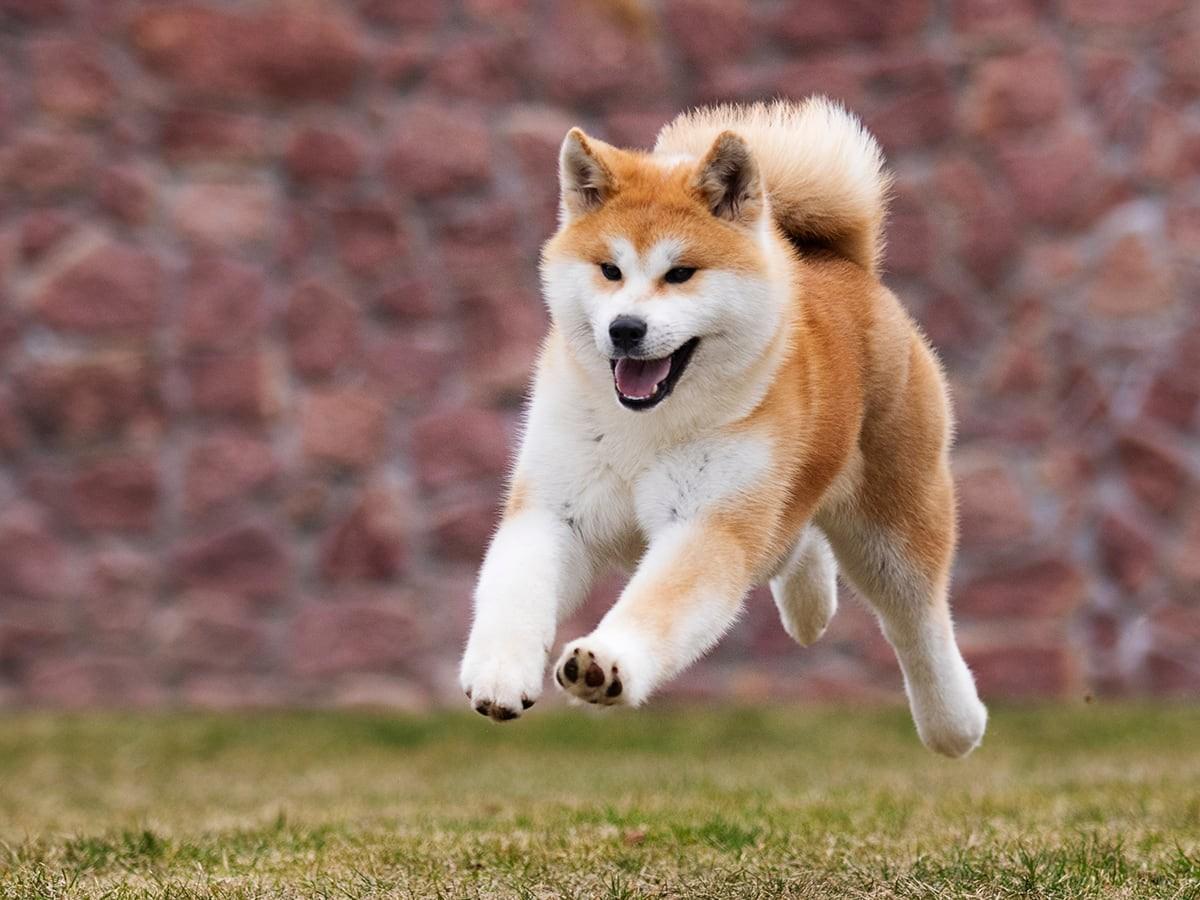
Akita
The Akita is a large sturdy breed with a broad head and a short muzzle. They also have a muscular body with small eyes and upright ears.
Breed Profile
Height
24 - 28
Inches
Weight
70 - 130
Pounds
Life Span
10 – 13
Years
Health
health
Hip Dysplasia
What is it?:
As a result of poor joint development, hip joints become lax, eventually leading to arthritis.
Clinical signs
Lack of activity
A reduction in range of motion
Loss of thigh muscle
Hopping while walking
Discomfort in standing
Loss of appetite
Lethargy
Popping sounds of joints
Treatment
Large breed dogs are often prone to Hip Dysplasia. Hip Dysplasia can also be developed due to genetics. Few treatment options are:
Joint supplements
Physical therapy
Total hip replacement surgery
Double or triple pelvic osteotomy
Femoral head ostectomy
Acupuncture
Eligible vet bill
$3,500
*Hypothetical reimbursement examples illustrate reimbursement of an eligible vet bill at the noted reimbursement rate, assuming the annual deductible had already been satisfied and the annual coverage limit has not yet been met. Annual deductible, co-insurance, benefit and coverage limits, and exclusions may apply. Eligibility may vary. Visit https://spotpetinsurance.ca/sample-policy for full terms. For Canada enrollments only, reimbursement rate is based on the pet's age.
health
Gastric Dilatation-Volvulus
What is it?:
In this illness, stomach contents and gas are trapped in the stomach by rotating. Ultimately the stomach tissue may die and lead to a rupture.
Clinical signs
Early signs of Gastric Dilation Volvulus are:
Bloating
Drooling
Stomach pain
Collapsing
Vomiting
Treatment
Gastric Dilatation-Volvulus can be fatal and the most common treatment is to get the stomach reversed through an operation. Other treatments include:
Parts of the stomach may have to be removed after surgery
A fluid drip helps with their dropping blood pressure.
Pain medication can be prescribed
Eligible vet bill
$2,000
*Hypothetical reimbursement examples illustrate reimbursement of an eligible vet bill at the noted reimbursement rate, assuming the annual deductible had already been satisfied and the annual coverage limit has not yet been met. Annual deductible, co-insurance, benefit and coverage limits, and exclusions may apply. Eligibility may vary. Visit https://spotpetinsurance.ca/sample-policy for full terms. For Canada enrollments only, reimbursement rate is based on the pet's age.
Personality
Courageous
The Akita has a strong wilful street and can serve to be great protectors of the family. They are good in challenging situations and will not back down.
Loyal
The Akita dog breed is very affectionate and loyal to its family and will follow you around just to please its owner.
Social
The Akita may be aloof around strangers but they need companionship. They do not do well when left alone. They like to be around their family.
Lifetime Care
Coat
They have a soft and thick undercoat, while their overcoat is dense and short.
Colors
The Akita is available in white, brindle, sesame and red fawn, silver, and mixed colors.
Hypoallergenic
No
Grooming
The Akita has grooming requirements as they shed quite a bit of its fur. Their fur may be all over the sofas and chairs. One may need to vacuum often. They may shed more once or twice a year. Their coat needs to be brushed weekly.
Training
The Akita is a slightly stubborn breed and needs to be trained from the get-go. They can be bored easily and require sessions that keep them interested. They respond well to positive reinforcements and praise.
The Akita originates in the rural and cold region of Odate, located in northern Japan. Their existence dates back to the 1600s. They were trained to hunt and fight dogs and even excel at police work. The Akita is a fearless, strong, and devoted dog breed. They are very close to their family and will do anything to keep them safe.
Akita: Introduction to the Dog Breed
The Akita is a loyal and affectionate dog breed with the following
Akita Physical Characteristics:
Small eyes
Erect ears
Broadhead
Curled tail
Muscular body
Akita Dog is best suited for pet owners:
Who has time to train their pet
Who are not first-time owners
Who are looking for a loyal and affectionate pet
Who can take charge, as these dogs can be willful and stubborn
Things to watch out for before deciding to own an Akita Dog
The Akita does not do well if left alone and needs companionship.
They can be stubborn pets and require proper training. They need to be dealt with with patience and tact.
They love to carry things around and carry small toys or objects around the house.
They love to go on walks and will lead you to their leash.
The Akita also has cat-like tendencies. They lick their fur to groom themselves.
What should an Akita Dog eat?
The Akita needs to be fed 3-5 cups a day as they are a large breed. They will perform well if a balance between wet and dry food is given to them. They need to be given food that is rich in proteins as they have an active lifestyle. Their diet should consist of healthy fats, vegetables, and appropriate proteins. They should not be overfed as they are a large dog breed and have the tendency to store fats.
Read More: Akita Dog Insurance Cost Guide
Conclusion
The Akita is a wonderful dog breed to own. They may not be your lap dog, but they have proved to be affectionate and devoted to their families. The more you get to know them, the more you fall for the tender giants that they are. They may be a large hunting breed, but they can also be funny and loving and make their way into your hearts. They may be courageous and strong, but they need human companionship, and once you are a part of their life, they will protect you till the very end and follow you around.
Sources:


